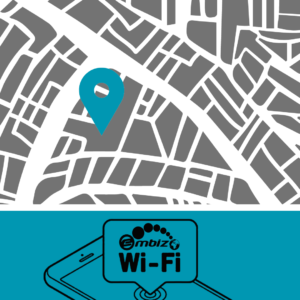
South African startup e-Mbizo, which is rolling out community Wi-Fi networks in under-serviced townships and rural communities, says it has so far connected more than 300,000 devices to its network, with a daily unique device connection rate of 6,000.
e-Mbizo initially deployed its network in Tembisa, Limpopo, in 2012, saying it has responded to the call for reduced cost in telecommunications and wider reach of internet services. in South Africa and, “ultimately”, the rest of the continent.
The startup has thus far rolled out infrastructure across hundreds of kilometres in South Africa’s Gauteng, Mpumalanga and Limpopo provinces.
“The network already connects more than 200 disadvantaged schools and more than 30 impoverished communities to free broadband internet,” chief executive officer (CEO) Thabo Malebadi told Disrupt Africa, while detailing its expansion plans.
“The company also expects to see a further growth into at least four additional provinces in 2015, namely KwaZulu Natal, Free State, the Eastern Cape and the Western Cape.”
Aside from Wi-Fi, e-Mbizo also offers traditional telco services such as voice telephony, messaging, cloud storage, collaboration tools and video-related services.
Malebadi said the concept for the company was first envisioned in 2002 after the deregulation of South Africa’s telecommunications industry.
“I was 19 years old at the time and knew very little about the ins and outs of commerce back then, but the dream to bridge the digital divide, most importantly in under-serviced and rural communities, kept me going,” he said.
After finally bringing his dream to fruition, Malebadi said he had found a segment of society where e-Mbizo could make a real difference.
“The South African incumbent networks tend to target their market in more affluent market segments. The mass market, also known as the bottom of the pyramid, is usually ignored, most especially when it comes to quality of service,” he said.
“Mobile operators offer 3G internet, which is also too expensive, while the normal hotspot providers are normally in the upmarket restaurants and hotel lobbies.”
Given these factors, e-Mbizo is one of a number of companies and organisations across Africa to have identified the potential of Wi-Fi.
“Today’s technology and an ever-growing spread of handheld devices that are data usage intensive has escalated the demand for free to affordable access to connectivity. There is a vast roll out of Wi-Fi in the country on different levels, either by private sector or public sector,” Malebadi said.
“With the pop up of different Wi-Fi hotspots in shopping malls, restaurants, hotel lobbies and so on, people have identified an alternative means to bridge their access needs. Furthermore, education, health and other government institutions are only now embracing the benefits that come with broadband access and ultimately Wi-Fi is more affordable for these types of applications.”
e-Mbizo was initially self-funded by its shareholders, before initial seed capital funding was secured through the Innovation Hub’s startup support programme.
“It is structures such as the Innovation Hub that have shown keen interest in supporting the development of industry game changers such as ourselves to forge ahead. We hope government at large can come to the party,” Malebadi said.
Much of the focus on Wi-Fi in South Africa has been on the non-profit Project Isizwe, but e-Mbizo is very much for-profit.
“Mobile data is still a very attractive service and is in high demand,” Malebadi said. “The company also has a small enterprise development initiative for co-operatives, small business and entrepreneurs, to participate in e-Mbizo’s Micro Franchise opportunity, where they are able to commision the infrastructure on the back of e-Mbizo’s backbone within their own communities.”
The startup is also an MICT SETA-accredited skills development and training services provider, offering courses in basic to advanced computer skills within the communities it operates in.
“Furthermore, we will be venturing into the financial services space, with a payment solution, in an endeavour to seek to address the financial inclusion of the under-banked and unbanked population of our society. e-Mbizo along with its partners will be launching virtual mobile banking and payment mechanism geared to revolutionize the banking industry driven through e-Mbizo’s wireless network infrastructure,” Malebadi said.
“The possibilities are countless and we can definitely add significant value to the continent’s drive to connect even the most remote people in Africa.”
Growing the company has not been without its pitfalls, however, with the lack of initial funding the first problem.
“The initial funding for the business was a nightmare, in fact I could have easily dropped the hat based on this issue,” said Malebadi. “People and financial institutions, both private and government agencies, had very little faith in our vision. Thank God for my partners who kept me going during those dark moments.”
Wi-Fi in South Africa is also not without its issues, though Malebadi feels there is a huge opportunity for it in South Africa and beyond.
“Wi-Fi as a licence-free service meets numerous obstacles along the journey, among others being the congestion of the 2.4GHz and 5.8GHz bands, which are predominantly used for wireless technologies and are prone to interference,” he said, adding e-Mbizo also needed to tackle the misconception that Wi-Fi is unstable and insecure.
“The fact is that regulations in South Africa are also not as flexible as may be required to accommodate the developments in access technology. Government also needs to embrace the possibility of Wi-Fi enabling an even better more efficient social public service delivery platform,” he said.


